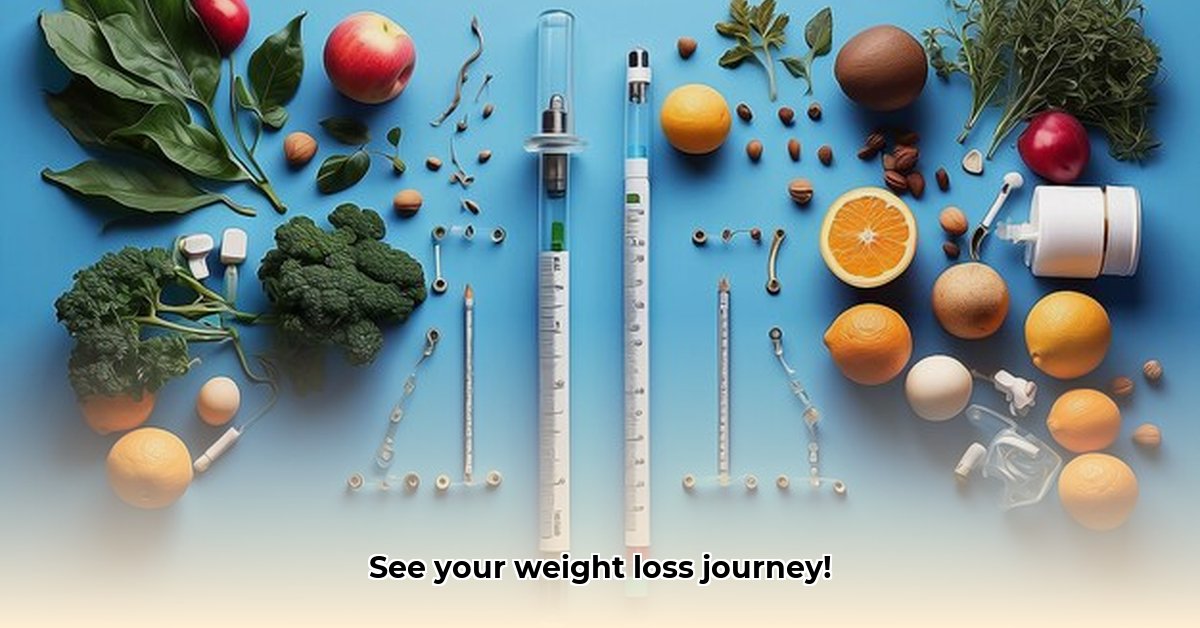
The Rise of AI Weight Loss Apps: A Digital Mirror to Your Goals?
Imagine uploading a photo and, in seconds, seeing yourself at your ideal weight. AI weight loss photo generators promise just that, offering a digital glimpse of your potential transformation. But is this technological magic a helpful motivator, or a recipe for unrealistic expectations and potential harm? This article explores the burgeoning world of these apps, examining their technology, benefits, ethical concerns, and the crucial need for responsible use.
A Market Snapshot: The Landscape of AI Weight Loss Apps
The AI weight loss app market is rapidly expanding, with numerous apps offering varying features and levels of sophistication. Some prioritize photorealistic results, subtly altering body proportions, while others provide more dramatic transformations. Key features include customizable adjustments, the option to change clothing, and even the use of fictional character models for a less personal, less potentially judgmental experience. However, the accuracy and ethical implications of these transformations vary significantly. A crucial differentiator across various apps lies in their approach; some focus on realistic simulations, while others lean towards more fantastical results. This diversity highlights the need for educated consumer choices. How do these tools’ differing approaches impact user experience and potential risks?
Decoding the Algorithm: How AI Creates Your Digital Makeover
These apps utilize sophisticated algorithms trained on vast image datasets. They analyze input images, identifying body features and proportions, and then apply mathematical models to digitally synthesize a weight-adjusted version of the user. This involves complex processes that take into account various body measurements, creating a more realistic simulation. That said, it's crucial to remember that these are estimations; they aren’t precise predictions of what weight loss would actually look like. The accuracy of these estimations hinges heavily on the quality and diversity of the training data, which is why some apps may produce more realistic results than others. Furthermore, the use of fictional characters vs. realistic transformations may affect user perception and motivation. What role does data quality play in determining the accuracy of the AI's projections?
Ethical Considerations: Balancing Motivation with Realistic Expectations
While AI weight loss generators can be motivational tools, they also pose substantial ethical concerns. The risk of creating unrealistic expectations is profound. Users might develop unhealthy body image ideals and feel disappointed when real-life results diverge from their digitally enhanced selves. The potential for triggering eating disorders or exacerbating existing body dysmorphia is a significant concern. Privacy is another key ethical consideration. What happens to the images and data uploaded? What security protections are in place to prevent misuse? Are these apps transparent about their data collection and usage policies? How can developers successfully navigate the ethical tightrope of providing a motivational tool without causing harm?
Practical Guidance: Navigating the World of AI Weight Loss Apps Responsibly
If you choose to use an AI weight loss photo generator, consider the following actionable steps:
- Maintain a Healthy Skepticism: Remember these are visualizations, not guarantees. They should inspire, not dictate, your weight-loss journey.
- Set Realistic Goals: These tools should enhance your motivation, not replace a balanced approach to weight management.
- Focus on Holistic Well-being: Weight loss involves more than just aesthetics; prioritize mental and physical health.
- Consult Professionals: Work with qualified professionals—doctors, dietitians, or trainers—for personalized support.
- Scrutinize Privacy Policies: Review the app's privacy policy meticulously before uploading personal information.
The Future of AI in Weight Loss Visualization: A Cautiously Optimistic Outlook
The technology behind AI weight loss generators is rapidly evolving. As algorithms improve and datasets expand, we can expect more accurate and nuanced visualizations. However, ethical considerations remain paramount. Responsible development, transparent data practices, and user education are essential in maximizing the benefits and minimizing the potential harms. The future success of these tools depends on a collaborative effort between developers, users, policymakers, and healthcare professionals. The responsible advancement of this technology can pave the way for positive change in how individuals approach their weight loss journeys. What role does ongoing research and regulation play in ensuring the responsible use of AI in weight loss visualization?
"The potential benefits of AI-powered weight loss tools are undeniable, but we must prioritize responsible development and user education to minimize potential harms," says Dr. Anya Sharma, a leading researcher in digital health ethics at the University of California, Berkeley. "Transparency and user control over data are crucial to building trust and ensuring the ethical use of this technology."
Visualize Success: The Magic of AI Weight Loss Generators
The hardest part of any wellness journey isn’t the calorie counting or the early morning workouts; it’s maintaining the mental picture of your eventual success when results feel agonizingly slow. We all need that tangible motivation, something more impactful than a spreadsheet of goals. Enter the AI Weight Loss Photo Generator, a revolutionary digital tool that bridges the gap between your current reality and your aspirational self. By simply uploading a front-facing image of yourself, advanced algorithms analyze your physical structure and then render a highly realistic depiction of what you might look like after achieving a significant goal, offering a powerful, personalized glimpse into your future. This technology transforms abstract aspirations into immediate, visual inspiration that keeps you focused during plateaus.
What distinguishes these generators from rudimentary Photoshop tools of the past is the stunning level of detail and physiological realism. Modern AI models understand human anatomy, adjusting facial structure, jawlines, and overall body distribution in ways that look organic rather than superimposed. The software accounts for factors like natural lighting, accurate shadows, and even potential muscle tone changes, providing an emotionally resonant image that often feels like looking into a specialized mirror from the future. It serves as a potent motivational anchor, a visual reminder on those days when compliance is low that your efforts are aiming toward a specific, tangible outcome, making the daily grind feel much more purposeful.